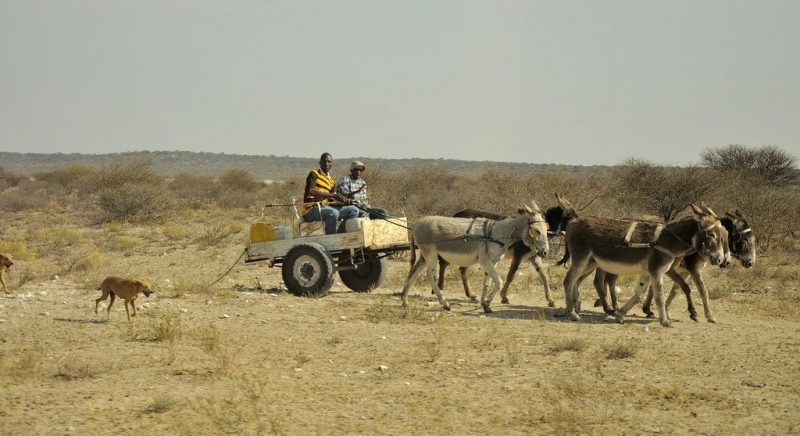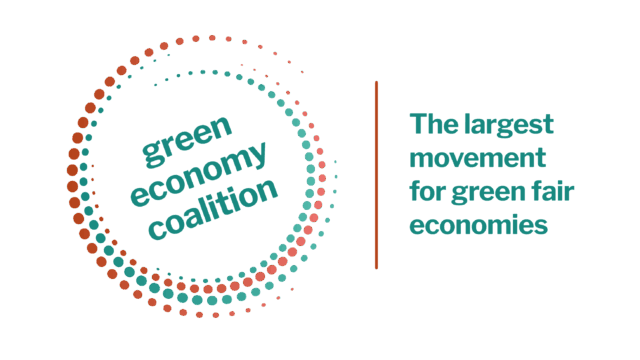A national vision for a green economy emerges from Botswana

Reflections from the first multistakeholder dialogues on a Green Economy in Botswana
Botswana recently organised one of Africa’s first multi-stakeholder dialogues to explore the Green Economy (GE) concept and to map out what transitioning to a GE would entail for the country.
The basic principles of Sustainable Development (SD) have been part of the country’s approach to development for the last two to three decades. Botswana has a international track record in pursuing good governance, sustainable growth on the basis of prudent economic management, sound investment of mineral revenues in human and physical capital including health and education infrastructure, establishment of social safety nets, and the wise use and conservation of natural resources and biodiversity in and outside of protected areas.
The policy building blocks for SD are prominent in Botswana’s Vision 2016 document, having been gradually constructed through various policies and strategies – notably the National Conservation Strategy (1987), the National Policy on Natural Resources Conservation and Development (1990), the National Strategy for Poverty Reduction (2003), the Strategy for Economic Diversification and Sustainable Growth (2008) and the various National Development Plans including the current NDP X (2009-2015). However, the workshop noted that these initiatives had not dealt definitively with key economic issues concerning the environment – such as environmental pricing, incentives and fiscal policy, or the role of enterprise in sustainable development, and hence the economic building blocks of sustainable development may not be robust.
The Green Economy workshop considered different GE working definitions , all of which hint at the need for improved economic governance. Participants agreed that the country’s current GDP growth-based trickle-down development pathway had led to some misallocation of capital which had undermined the environmental asset based for development, and moreover had not resulted in benefits for poor groups. While for Botswana a focus on GDP has achieved increased national wealth, it has increased stark income differentials and has widened rather than narrowed the gap between the rich and the poor. Consequently, participants identified the need to define a more inclusive people-centred, pro-poor and rights-based approach to development – one that also values environmental capital and respects environmental limits in its approach to wealth creation.The GE workshop participants discussed the linkages between the economy and the environmental and natural resource management sectors such as agriculture, tourism, water and energy, and particularly the opportunities within the sectors to alleviate poverty through decent green jobs.
The workshop agreed on a more people-oriented sustainable and inclusive development pathway, expressed as an initial ten-point vision on Green Economy for Botswana:
- Botswana’s competitiveness is improved through a preferential focus on diverse, productive and sustainable operations
- Stakeholders are well-networked so that information flows improve, innovation increases, and partnerships are formed to achieve shared goals
- Citizens and poor people in particular are empowered and benefit through decent jobs and improved livelihoods
- Government incentivises a Green Economy through enabling conditions, setting high standards across the sectors, and runs its own operations in a consistent, green and ethical manner
- Botswana private sector leads green growth, takes initiatives and transforms itself to become more efficient and inclusive; domestic investment is mobilised, and responsible foreign investment is attracted towards green infrastructure, goods and services
- Major issues are properly mainstreamed such as environment, biodiversity, desertification, and poverty eradication and there is strong leadership to move to action
- Resilience is improved through planning that takes a more integrated, coherent and future-oriented approach
- Accountability of all stakeholders is improved, through transparent information on resource stocks, flows and damages and a robust legal framework
- Built on solid knowledge, scientific and cultural principles including indigenous knowledge and ‘botho’, the latter captures the values of ‘humanness’, respect, courtesy, integrity, dignity
- Botswana is internationally secure and responsible – cognisant of, and contributing to, Botswana’s effective interdependence and role in the region and the world.
“ : Monitoring and evaluation tools would need to focus on assessing implementation towards outcomes rather than merely measuring effort. Botswana supports the development and implementation of new ways of measuring national ‘wealth’, specifically with new indicators on societal well-being and environmental health.”
-
GE transition paths must suit the country context: ensuring that GE transitioning models should be developed which may be employed by natural resource-rich countries to help them translate their natural resource abundance into economic prosperity through prudent investment and utilization of mineral revenue and beneficiation in order to achieve broader development goals such as improving the welfare of their citizens in health, education and building of infrastructure as well as assistance in meeting their national and global internationally agreed development goals including MDGs.
-
International cooperation, and avoiding inappropriate barriers: Following on from the assertion that GE is country-specific, Botswana has cautioned against the blunt use of Green Economy concepts to erect trade and other barriers including ODA or debt relief conditionalities by developed countries which could have adverse effects on the economies of developing countries. Imposing new technological standards and categorization of goods could further disadvantage the developing world in the international trading system. Such new standards have the potential to promote new forms of ‘green protectionism’ that will adversely impact on the exports of developing countries and worsen their terms of trade. Botswana therefore feels strongly that Green economy should not impose conditionalities on developing countries for aid, debt rescheduling or debt relief. Transitioning including the scoping thereof should therefore be accompanied by appropriate means of implementation, including financial and technical assistance, technology transfer, capacity building and the availing of adequate resources to assist developing countries in transitioning to a Green Economy. Rio+20 itself should provide an enabling environment for countries to define their own paths towards sustainable development based on national circumstances and priorities.
- Importance of national multi-sector dialogue and diagnosis: Botswana would welcome a process whereby countries commit themselves to undertaking Green Economy scoping exercises and to preparing national plans to transition to a Green Economy through an inclusive and participatory process which involves civil society and the private sector. Particular emphasis should be given to the involvement of youth and women organisations and the sustainable development challenges the youth and women face including the creation of decent green jobs.
-
Social protection integral to GE strategy: Reforming our economic sectors into low-carbon and resource-efficient sectors will have implications for all communities, sectors and nations. The poorest will be the most vulnerable to the shift and too reduce their vulnerability, it is important to maintain and strengthen social protection systems where these exist, and to establish those systems where none are in place. Social protection can furthermore play a key role in sustaining existing environmental protection practices by reducing poor families' reliance and pressure on natural resources.
-
Emphasis on policy coherence and proven means to achieve this: The transition to sustainable development requires of each and every country that it reaches a critical mass of changes in policies, institutions, regulation, and incentives to markedly address critical government and market failures and empower civil society engagement and ownership. Such changes need to be consistent and feasible, and take as starting points what we know about the real constraints and bottlenecks. National strategies or frameworks for sustainable development, poverty eradication and green economy often present a proven, integrated way to address the complex nature of sustainable development. This is particularly significant as sustainable development seeks to enhance the resilience of nations, communities and households as well as ensure that the poor and marginalized are not left behind.
-
Regional cooperation: For landlocked countries such as Botswana it is pertinent that sustainable development and transitioning to a low-carbon green economy is scoped within the context of regional cooperation in transportation and communications infrastructure, energy, land and water resources management, trans-boundary protected areas and natural resource management, trade and customs.
-
Accelerated capacity and technological development: Given the potential of green economy to spur investments in new equipment and new technology, opportunities for the transition from old technologies should be carefully considered and appropriately financed. Accordingly, capacity building, new skills transfer and training to aid proper transitioning to a Green Economy should be foremost in a possible technological revolution. This is particularly relevant in the area of climate change adaptation and mitigation. It is nearly impossible to achieve sustainable development goals without addressing climate change, and low-cost technologies for GHG abatement will be needed. For developing countries such as Botswana climate change adaptation is a crucial issue particularly for such sectors such as agriculture, development of infrastructure and communication networks, housing, water and health.
-
Green accounting: Botswana is of the strong opinion that countries must commit to a process of ‘accounting for the environment’ by quantifying the value that natural systems bring to our economies, and accounting for its use, growth or decline. Green accounting frameworks need to be integrated into national accounting practices in ways that support policy and investment decisions. Natural capital has no dedicated systems of measurement, monitoring and reporting, and yet our natural capital and its income flows are of crucial significance for jobs and mainstream economic sectors as well as for future economic development.
-
Measuring national wealth: Monitoring and evaluation tools would need to focus on assessing implementation towards outcomes rather than merely measuring effort. Botswana supports the development and implementation of new ways of measuring national ‘wealth’, specifically with new indicators on societal well-being and environmental health. GDP was never intended to measure national welfare. Not only does it fail to address the well-being of people or environmental quality, but the averaging of incomes per capita in GDP masks poverty gaps, and inequity and social justice issues. It is a flawed metric by which to base and inform policy debates. A more effective metric system should include natural capital and social justice considerations and ponder such indicators as Adjusted Net National Income (ANNI) or Adjusted Net Savings (ANS) and Human Development Index (HDI) or Genuine Progress Indicator (GPI) to measure the sustainability of well-being or income through access to a range of indicators including health, education, political decision making, security and the fair allocation of resources.
-
Consumption and production: Sustainable consumption and production including product life cycle and value chain assessment, ecological footprint awareness should be an integral part of a Green Economy and should appropriately capture among others:
- i. environmental concerns like energy emissions and the materials used in manufacturing, to aspects such as product origin and length of lifecycle;
- ii. social criteria e.g. ethical issues such as fair, safe and healthy working conditions; and,
- iii. economic factors including cost-saving measures and all costs associated with the lifecycle of a product including disposal.


